Ignition Interlock Violation Penalties in Florida: Staying on the Right Side of the Law
Wondering what happens when you get a DUI in Florida? If you’re convicted of Driving Under the Influence (DUI) in Florida, the courts can order you to install an Ignition Interlock Device (IID) on your vehicle. These gadgets test a driver’s Blood Alcohol Level (BAL) before the driver can start their engine, as well as at random intervals as they drive.
Drivers are generally responsible for the installation and maintenance of such devices. There are also many infractions—such as tampering with or removing an IID—that can get drivers into even more legal trouble.
Here, we’re covering the Ignition Interlock violation penalties Florida considers unlawful infractions. If you’re required to use an IID and want to continue to keep yourself safe, knowing and following these guidelines is essential.
When Am I Required to Install an IID in Florida?
Whether or not you’re assigned an IID after a DUI depends on how many convictions you have and their severity. Likewise, how long you’ll need to keep one installed in your vehicle also varies based on the same factors.
The following guidelines dictate IID sentences in Florida1:
- First conviction – Assigned at the court’s discretion
- First conviction with a BAL above .15 or a minor present in the vehicle – 6 months minimum
- Second conviction – One year minimum
- Second conviction with a BAL above .15 or a minor present in the vehicle – Two years minimum
- Third conviction – Two years minimum
- Fourth and subsequent convictions – Five years minimum if the state decides to reinstate your license as part of a hardship program
Drivers may be ordered to install IIDs pursuant to these terms if they wish to have their license and driving privilege reinstated either permanently or temporarily. The devices are mandatory whether you’re seeking reinstatement for business, personal, or other purposes.
If an IID is cost-prohibitive for you, a Florida court may be able to allot a portion of your initial DUI fine to pay for part of the installation.1 Failure to get an IID before driving your motor vehicle again can result in further consequences for convicted individuals. Additionally, after installation, there are IID maintenance and use terms that can also lead to legal trouble if not closely followed.
What Is an IID Violation in Florida?
An IID violation is an unpermitted action done with or to an Interlock device. There are a variety of different types of violations one can commit with an IID and, when they do, information about the act is automatically collected by the device and submitted to the service provider.2
In turn, the provider will submit that reading to the Florida Department of Transportation (FDOT). After reviewing the event, the FDOT will either2:
- Recognize it as an error and remove it from the driver’s record, or
- Determine that it’s accurate and take the appropriate disciplinary action
Below, we’ll review some common IID violations, their consequences, and how to avoid them.
Alcohol Level Violations
IIDs are breathalyzers that require drivers to provide a sample of their BAL before allowing them to start their car. They’re designed to ensure the driver’s sobriety and will intermittently ask for more samples as long as the vehicle remains on.
In Florida, the legal BAL limit for driving is under .08. For IID users, however, this concentration needs to be even lower before they can turn on their engines. The state applies the following limits for passing an IID breath test3:
- For those convicted after July 1st, 2013 – For individuals in this category, IID devices will be calibrated to .025. Providing a sample above this limit will result in a failed test and potential legal repercussions.
- For those convicted before July 1st, 2013 – For a prior DUI conviction like these, IIDs will be set to fail users above .05.
- For those under 21 – Florida law prohibits anyone under 21 from operating a vehicle when at a BAL of .02 or above. Thus, courts may choose to calibrate a younger driver’s IID to this level or lower when mandating installation.
- For other circumstances – All in all, judges have the final say in what an individual’s IID is set to. If they feel it fits, they can calibrate their threshold even lower than these commonly assigned limits.
Providing two samples over the limit upon initial startup—or just one during a random rolling retest—is considered a violation under Florida law.
Missed Service Appointments
If you have an Ignition Interlock requirement, you’re responsible for arranging the installation, maintenance, and removal of the device by a certified vendor. As mentioned, an IID must be installed on your motor vehicle before you can apply to have your license reinstated.
Furthermore, throughout the period that your IID is assigned to you, you’re required to stick to Florida’s strict maintenance schedule. The state requires monthly recalibration and service to ensure the accuracy and effective operation of IIDs. Such maintenance must be done at a registered provider in Florida or a recognized out-of-state vendor.3
Failure to adhere to your Ignition Interlock requirement and maintenance schedule is another violation for which drivers can find themselves in hot water.
Tampering With The Device
While individuals convicted of DUIs are responsible for the installation and maintenance of their IIDs, the devices aren’t truly theirs in the conventional sense. They can’t be adjusted, removed, or recalibrated to the vehicle owner’s will, and doing so could result in legal ramifications.
Tampering with an IID is considered an infraction by the FDOT. Some ways you can be booked for IID tampering may include2,3:
- Removing the device before the court-ordered end date without filing the proper paperwork and surrendering your license first
- Intentionally altering or breaking the device
- Having the device surreptitiously recalibrated or bypassed
- Getting the device worked on by anyone who’s not a certified vendor
Committing any of these acts constitutes a violation. If your IID needs repairs or service outside of your monthly scheduled appointment, contact your IID provider to get it looked at.
Failure to Provide a Sample
As noted, IIDs ask drivers for breath samples before starting their engines. If you provide a sample above your court order threshold, you’ll be unable to drive your vehicle. This in itself may not be a violation, however.
In five minutes, your IID will prompt you to provide another sample to ensure the first wasn’t a false-positive or a failure due to latent alcohol (for instance, alcohol that’s present after rinsing with mouthwash). If you pass the second time, the failed sample will be considered invalid and you’ll be able to drive your vehicle. If you fail again, however, you’ll be hit with a violation and have to deal with the subsequent consequences.3
Furthermore, IIDs will randomly require drivers to provide further samples while operating their vehicles. When an alert pops up requesting another sample, you’ll have a couple of options:
- Blow into the device while driving, if you feel comfortable doing so
- Find a place to pull over before providing a sample
Your IID will give you three minutes to take a test before an alarm alerts you that you’re too late. Failure to provide a sample within this window, like other infractions on this list, will result in a violation with the FDOT.3
The Consequences of IID Violations in Florida
After committing any of these violations, individuals will be subject to the legal ramifications assigned by the FDOT. Despite the variation between different types of violations, their punishments are equal and depend on how many you receive2:
- First violation – After one violation, you’ll be required to meet with an FDOT-licensed DUI program representative and explain the reasoning behind your actions.
- Second violation – Following a second violation, you’ll be required to begin conferring with a DUI program on a monthly basis. These meetings will continue until the final removal date of the IID.
- Third violation – Is DUI a felony in Florida? If it’s your third DUI charge or it caused severe bodily injury, then yes, it may considered one. Third-time convictions add 30 days to the length of your existing IID term. You’ll likewise be required to attend an alcohol and substance abuse education program, with failure to do so resulting in the revocation of your license.
- Subsequent violations – After the third violation, every infraction will add 30 more days to your IID sentence.
Repeated violations can make it nearly impossible to reach the end of your IID program and drive freely again. So, to ensure you avoid them and can complete the terms of your sentence, be sure to:
- Provide timely samples at your device’s request
- Always blow under your assigned threshold
- Avoid tampering with, breaking, or removing your IID
- Install and maintain the device to the FDOT’s standards
Furthermore, to make sure you have a reliable partner for IID maintenance (and timely removal upon completion of your program), it’s essential to go with a highly accountable and responsive vendor.
Smart Start Can Help You Avoid IID Violations in Florida
Florida has some rather stringent guidelines governing IID maintenance. While some states only require maintenance and calibration every three months, Florida imposes a much more strict 30-day rule.2,4 To ensure you stay on top of your maintenance schedule, pick an IID provider with experience and excellence in the field.
Smart Start has been helping drivers meet the terms of their Florida Interlock agreements for over 30 years. From quick installation and responsive service to careful calibration, there’s a wealth of reasons that over one million people have chosen us for their IID needs.
If you’ve been convicted of a DUI and need Florida Interlock service, we can get you set up, meticulously maintain your device, and, when the time comes, remove it so that you can drive freely once again.
Sources:
- Florida Department of Highway Safety and Motor Vehicles. Ignition Interlock Program. https://www.flhsmv.gov/driver-licenses-id-cards/education-courses/dui-and-iid/ignition-interlock-program/
- Office of Inspector General. Ignition Interlock Device Program. https://www.flhsmv.gov/pdf/igoffice/20181902.pdf
- Florida Department of Highway Safety and Motor Vehicles. Ignition Interlock Device (IID) Frequently Asked Questions. https://www.flhsmv.gov/driver-licenses-id-cards/education-courses/dui-and-iid/ignition-interlock-device-iid-faqs/
- Arizona Department of Transportation. Certified Ignition Interlock Device (CIID). https://apps.azdot.gov/files/mvd/mvd-forms-lib/99-0177.pdf
Schedule an Installation
Get a quick and easy IID installation with Smart Start! Get started today!
¡Obtenga una instalación rápida y fácil de IID con Smart Start! ¡Empieza hoy mismo!
"* (required)" indicates required fields






